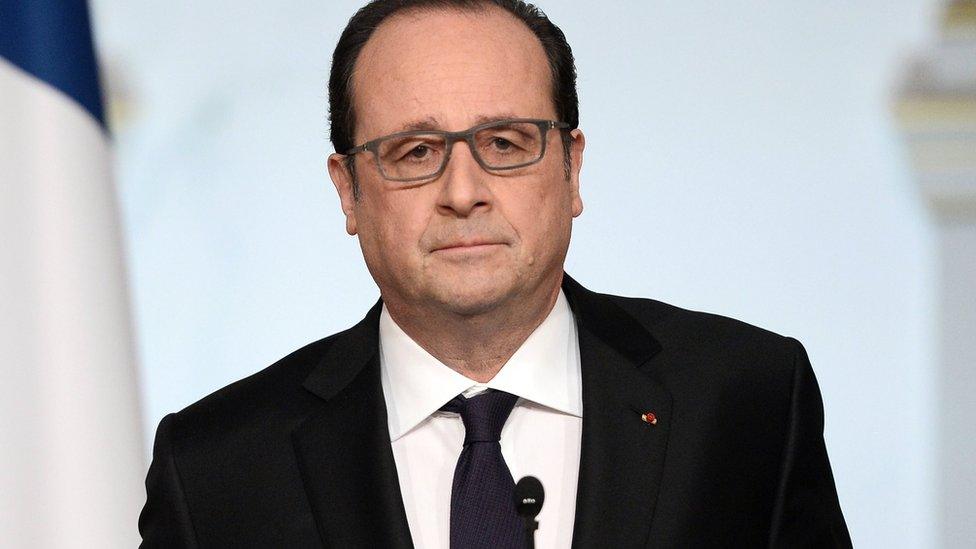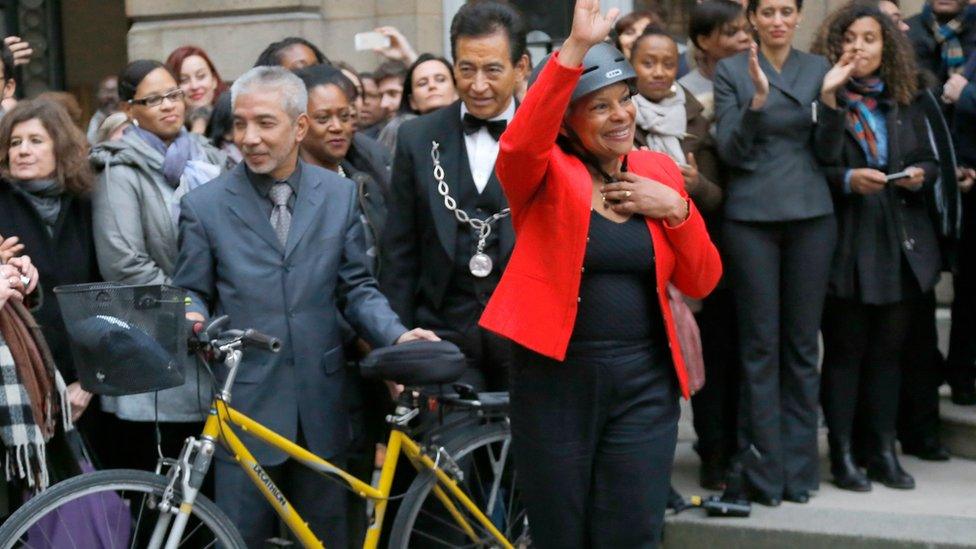One battle too many for beleaguered Hollande
- Published

The failure of the measure has highlighted the political quagmire surrounding the president
It is a brave leader who sets out to change France's constitution.
The nation likes to date much of its identity from the revolution that created its written constitution, and changing it requires the support of both houses of parliament, plus three-fifths of the joint Congress.
That would be achievement enough for a president in the flush of a political honeymoon.
For Francois Hollande and his deeply divided Socialist Party, it has proved a step too far.
Two-tier system?
The bill, announced in the wake of the November attacks, set out new, more specific conditions for declaring a state of emergency, but the fiercest debate was reserved for a proposed article on stripping French nationality from those convicted of terrorist offences.
Under the original terms of the article, only those holding dual nationality would be stripped of their French passports, but after criticism that it would create a "two-tier system" - with some French citizens more equal than others - the wording was changed to embrace everyone, the idea being that those with nowhere else to go would simply have their rights as citizens removed.
It passed, but not before the split in President Hollande's cabinet had erupted into the open, with Justice Minister Christine Taubira resigning in protest.
Now the Senate has demanded that the wording be changed back to the original format, meaning the law would affect only dual nationals, and threatening to reopen the bitter debate on the left about discrimination.

The highest-profile casualty has been Christiane Taubira, who quit as justice minister in January
Prime Minister Manuel Valls has admitted that the proposed measure was more symbolic than practical.
Those threatening France with terrorism, it was pointed out, were unlikely to be dissuaded by the possibility of losing their passports.
Now, it seems, the government has concluded that the benefits offered by the bill are more trouble than they are worth.
Speaking after his cabinet meeting this morning, Mr Hollande said that "compromise was beyond reach" and that he was "closing the discussion" around the proposed bill.
Fractured politics
But the high-profile failure has also shone a spotlight on the political quagmire surrounding the president, just a year before the country chooses a new leader.
Mr Hollande's tough response to the November attacks brought him a brief uptick in approval.
He and his prime minister have been pushing back against the left wing of his party, in a bid to show he can deliver leadership and change.
With fractures running through both the Socialist Party and the centre-right opposition, and many French voters complaining of stasis at the heart of their political establishment, this is one defeat he could do without.